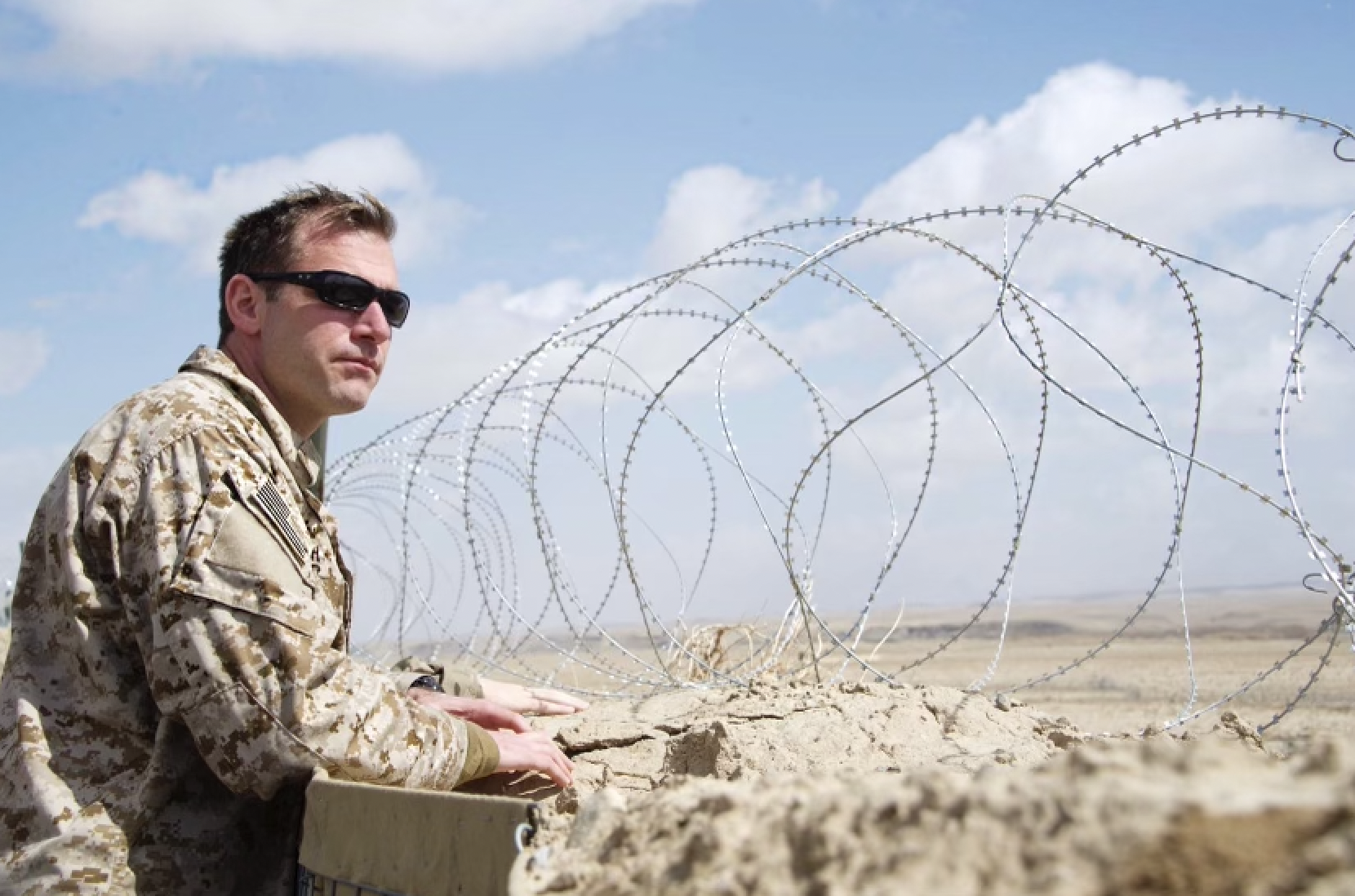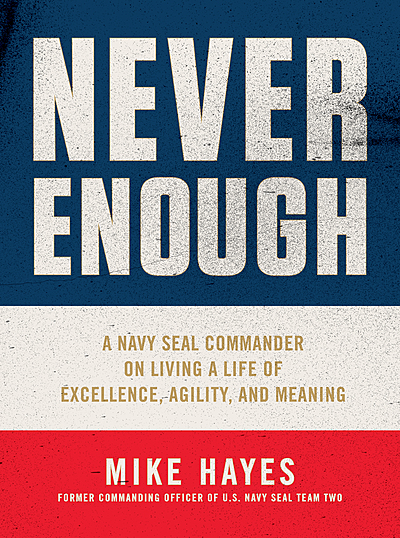It’s not just about doing the hard things—it’s about seeing the hard things as opportunities for us to be our best instead of letting ourselves get overwhelmed by stress and anxiety. In part, it’s about trying to relax, believing in our own talents and abilities, and rising above the pressures of any given situation. But it’s also about finding the hard things that are right for each of us as individuals.
I mentioned that my SEAL training class shrank from 120 to 19 by graduation; the truth is that there weren’t that many people who couldn’t hack it physically. There were some, of course. But if you got into SEAL training in the first place, there were minimums you had already shown you could reach, and there were screenings that would have already weeded you out if you didn’t have the raw horsepower needed to succeed. The issue, far, far more often, was mental. Being a SEAL—being able to embrace misery of the hardest kind—ended up being too much for a lot of the members of my class. But that just meant the SEALs weren’t the right “hard thing” for them to tackle. Many of them ended up becoming quite successful in other arenas. They just needed to find the role where at their worst, they could be just as assured, just as capable, and just as steady as they were at their best.
First, attitude is so important. You can’t make me have a bad day. You can try, absolutely, but only I can make me have a bad day. And I’ve had bad days—the loss of far too many friends, teammates, people who were like brothers to me—but you choose whether to let those bad days spin you negatively or to decide you can only control what you can control, and that you can use what you do control to impact the rest of the world in a positive way.
Chris Cassidy was my “swim buddy” throughout SEAL training. He is now a NASA astronaut and former chief of the Astronaut Office, and spent much of 2020 in space for the third time, aboard the International Space Station. One of our exercises during SEAL training was ocean lifesaving, where we had to “save” our “drowning” instructors in high surf and freezing waters. Mostly it was an excuse to force us into the bitterly cold ocean for hours. We’d had other ocean exercises where we were told to lock arms with the man next to us and just lay there. And then lay there some more. The shivering and full-body convulsions come quickly when you’re that cold. People “jackhammer” uncontrollably and some start to hallucinate. I remember one trainee next to me saying he saw sharks swimming up next to him. He freaked out and quit SEAL training right then and there.
In our lifesaving training, none of us were ever told we were good enough at saving lives and permitted to get out of the water. Instead, the instructors in charge would sit in their heated trucks with megaphone speakers on the roof and let us know that if anyone wanted to quit training, they could join the instructors in the warmth and share some hot chocolate. For BUD/S students on the verge of dropping out, it was an alluring option. Chris and I, despite both growing up swimming in the cold waters off New England, were just as miserable as anyone else, but we looked at each other, shivering and shaking, and started to laugh uncontrollably. It was such a ridiculous situation that we couldn’t help ourselves. Soon, we had other students around us laughing too. Before long, the instructors were watching an entire class of SEAL trainees laughing about being in the freezing water, laughing through our forced torture.
Chris and I, along with our classmates, learned that no matter how hard something may seem, it is only as hard as you allow it to be. Months later, after graduating from training, one of the instructors I admired most pulled me aside and told me he remembered that day in the water, and that what Chris and I had done demonstrated exactly what the SEALs need: leaders who can look beyond the misery of a situation and help others do the same. Sometimes, you have no choice but to look beyond the misery. It’s the only way to survive the toughest times.
The flipside is that when laughter and fun are not appropriate, you need to be able to rein yourself in. And when there is true danger, you need to be able to stay just as calm and controlled as you would be otherwise.
The smartest SEAL isn’t the one with the greatest raw intelligence. It’s the one who has the best and quickest reaction to a problem. The SEAL who can quickly assess and decide the best course of action is the one I want on my team, not the SEAL who gets emotional and lets his feelings—or his fears—get in the way of pure rationality. I said in chapter 1 that I would take someone with hunger over someone with greater ability every time. I’d also take someone who reacts well over someone with greater raw intelligence. You want both—intelligence and control—but in the stressful moments, control matters, a lot. I would love to find people who are smart enough to predict the future—but I haven’t come across many of them. So I need people who react well, no matter what the future turns out to hold. No matter the context, the importance of having good, controlled reactions to surprising situations can never be overstated.
And honestly, it’s easier to train emotional control than raw intelligence. None of us are born great leaders who react perfectly every time. We do the thinking and growing along the way. We put ourselves in the uncomfortable situations to test ourselves and to practice—and over time, we get better and better at maintaining control. We’re not designed to be perfect at this. These are our body and our brain’s automatic responses. But, with work, we can train ourselves to overcome them.
The practical tips will be different for each of us. From the stories I’ve already told, you can see that laughter is a big part of it for me. If I can find the humor in a situation—even a tense one—it can defuse some of the fear and make me think more clearly. If I can find an ally—a teammate, a buddy, even a friend who isn’t in the trenches with me but who I can call on the phone to talk through a problem with—I can move a step closer to realizing that I can handle whatever the current situation calls for.
Keeping the big picture in mind—understanding that the discomfort will pass, that the body and the mind will get used to whatever situation we’re in, faster than we realize—can also help me retain my composure. Going outside my body—thinking about what I would tell someone else in the same situation, the advice I would give a teammate or family member—is another trick that works for many of us.
Emotions help us at times, allowing us to act with compassion and warmth, but during difficult situations, we need to put our emotions aside and approach our decisions in a clearsighted, rational way. As a SEAL, I’ve had to learn just how critical it is to keep my feelings in check when there are bigger issues to consider.

You will find more incredible advice, insights, stories, and inspiration in Never Enough: A Navy
SEAL Commander on living a life of Excellence, Agility, and Meaning.



